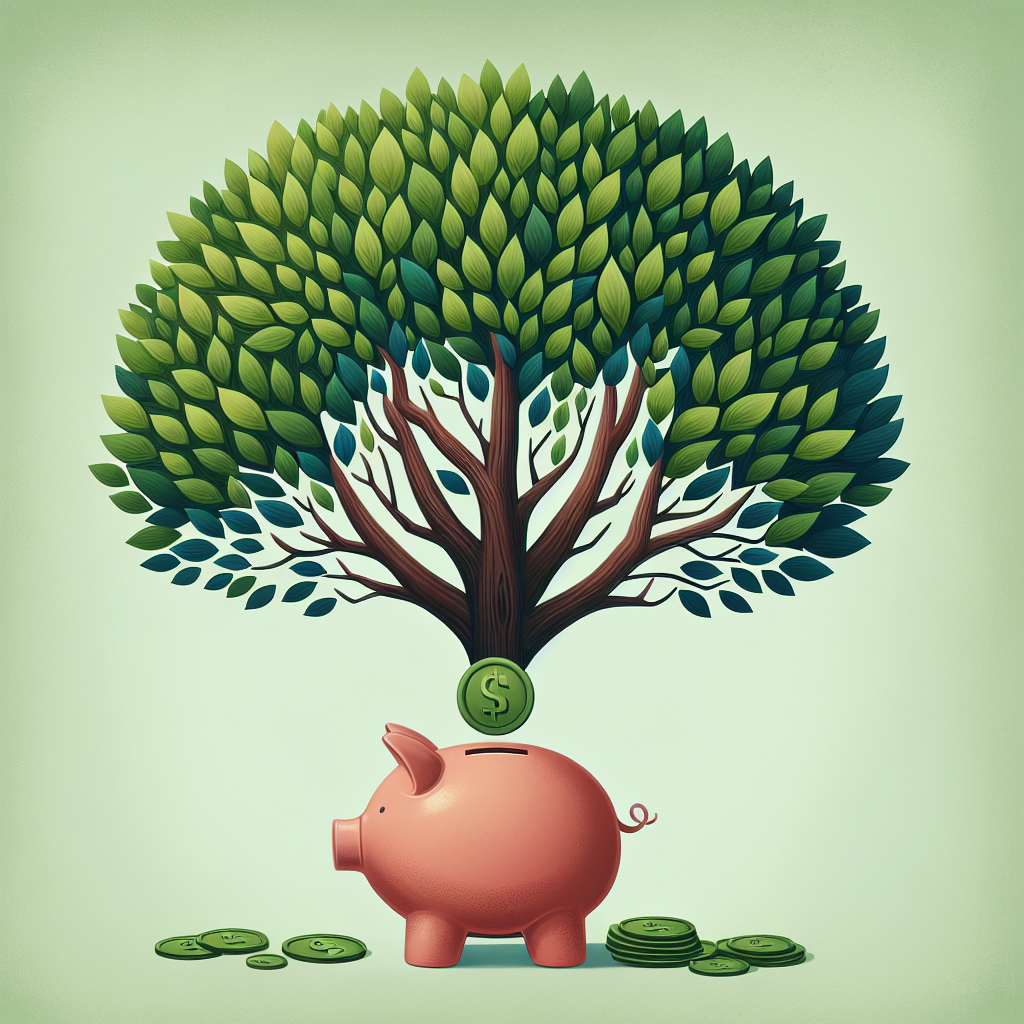In this article, you will discover valuable tips on how to effectively build and maintain healthy financial habits. We will explore practical strategies that can help you develop a positive mindset towards money, create a budget that aligns with your financial goals, and make informed decisions when it comes to saving and investing. By implementing these strategies into your daily life, you can start building a solid foundation for your financial well-being and achieve long-term financial stability.

Set goals
Understand your financial goals
Before you can effectively manage your finances, it’s important to have a clear understanding of what you want to achieve. Take some time to evaluate your financial aspirations and identify what is truly important to you. Whether it’s saving for retirement, buying a home, or starting your own business, knowing your financial goals will help guide your decisions and actions.
Set short-term and long-term goals
It’s important to set both short-term and long-term goals to keep you motivated and focused. Short-term goals can be achieved within a year, such as paying off a credit card debt or saving for a vacation. Long-term goals, on the other hand, may take several years or even decades to achieve, such as saving for retirement or buying a home. By setting a mix of short-term and long-term goals, you can track your progress and celebrate your achievements along the way.
Make your goals specific and measurable
To make your goals more effective, make sure they are specific and measurable. Instead of saying, “I want to save money,” set a specific amount that you want to save within a certain timeframe. For example, “I want to save $5,000 in the next six months.” This way, you have a clear target to work towards, and you can measure your progress along the way.
Create a budget
Track your income and expenses
Creating a budget starts with understanding your income and expenses. Track your income by documenting all the money you receive, including your salary, bonuses, and any other sources of income. Next, track your expenses by keeping a record of everything you spend money on, from fixed expenses like rent and utilities to variable expenses like groceries and entertainment. By keeping track of your income and expenses, you’ll have a clearer picture of where your money is going.
Identify necessary expenses
Once you have a complete record of your expenses, identify which expenses are necessary for your basic needs, such as food, shelter, transportation, and healthcare. These are expenses that you cannot cut back on or eliminate. By identifying your necessary expenses, you can focus on finding ways to reduce or eliminate discretionary expenses.
Differentiate between needs and wants
To build a healthy financial habit, it’s important to differentiate between needs and wants. Needs are essential for your basic survival, while wants are things you desire but can live without. When creating your budget, prioritize your needs and allocate a reasonable amount for your wants. By doing so, you can ensure that your necessary expenses are covered while also allowing yourself to enjoy some of the things you want.
Allocate funds for savings and investments
A crucial part of budgeting is allocating funds for savings and investments. Make these categories a priority in your budget and set a specific amount that you will save or invest each month. Treat your savings and investments as necessary expenses and prioritize them over discretionary spending. By making saving and investing a regular part of your budget, you’ll be able to build wealth and achieve your financial goals over time.
Regularly review and update your budget
Remember that your budget is not set in stone. It’s important to regularly review and update your budget to reflect any changes in your income, expenses, or financial goals. Take the time each month to review your budget and make any necessary adjustments. By regularly reviewing and updating your budget, you can stay on track with your financial goals and ensure that your money is being allocated effectively.
Save money consistently
Automate your savings
One of the best ways to save money consistently is by automating your savings. Set up an automatic transfer from your checking account to your savings account each month. By automating your savings, you won’t have to rely on willpower to save money, as it will happen automatically. This makes saving money a regular habit and ensures that you’re consistently putting aside funds for your future.
Start an emergency fund
Building an emergency fund is a crucial part of saving money. An emergency fund is a separate account that you set aside for unexpected expenses, such as medical bills or car repairs. Aim to save three to six months’ worth of living expenses in your emergency fund. This will provide you with a financial cushion and peace of mind in case of any unforeseen circumstances.
Save for specific goals
In addition to your emergency fund, it’s important to save for specific goals, such as buying a house or going on a dream vacation. By setting specific savings goals, you can stay motivated and focused on saving money. Determine how much you need to save and set a timeline for achieving your goal. Then, allocate a portion of your monthly budget towards saving for that specific goal.
Reduce unnecessary expenses
To save money consistently, it’s important to identify and reduce unnecessary expenses. Take a close look at your budget and identify any areas where you can cut back. This could be as simple as eating out less frequently or canceling unused subscriptions. By minimizing your discretionary spending, you’ll free up more money to put towards your savings goals.
Consider a separate savings account
Consider opening a separate savings account specifically for your savings goals. By keeping your savings separate from your checking account, you’ll reduce the temptation to dip into your savings for everyday expenses. This will help you stay on track with your savings goals and avoid the temptation to spend your hard-earned money on impulse purchases.
Track and manage debt
Understand your debt
To effectively manage your debt, it’s important to fully understand your current financial liabilities. Make a list of all your debts, including credit card debt, student loans, and any other outstanding loans. Note the interest rates, minimum payments, and total amounts owed for each debt. Understanding your debt will help you prioritize which debts to pay off and develop a plan to manage them.
Create a debt management plan
Once you have a clear understanding of your debts, create a debt management plan. Start by organizing your debts in order of priority. Typically, high-interest debts should be prioritized over low-interest debts. Decide how much extra money you can allocate towards debt repayment each month and develop a strategy for paying off your debts systematically.
Prioritize high-interest debts
High-interest debts, such as credit card debt, should be a top priority when managing your debt. These debts tend to have higher interest rates, which means they can accumulate quickly if left unpaid. Allocate extra funds towards paying off high-interest debts as quickly as possible. This will save you money on interest payments in the long run and help you become debt-free sooner.
Pay more than the minimum payment
When making monthly payments towards your debt, try to pay more than the minimum payment whenever possible. By paying more than the minimum, you’ll reduce the overall interest you’ll pay and shorten the time it takes to pay off your debt. Look for opportunities to increase your monthly debt payments, such as allocating bonuses or tax refunds towards debt repayment.
Avoid incurring new debt
While paying off your existing debt, it’s important to avoid incurring new debt. Aim to live within your means and avoid using credit cards or taking on new loans unless absolutely necessary. By practicing responsible spending habits and avoiding new debt, you’ll prevent yourself from falling back into the cycle of debt.

Establish an emergency fund
Determine an appropriate emergency fund size
An emergency fund is essential for financial stability. The size of your emergency fund will depend on your individual circumstances, such as your monthly expenses, job stability, and any potential sources of income. As a general guideline, aim to save three to six months’ worth of living expenses in your emergency fund. This will provide you with a safety net in case of unexpected events or emergencies.
Make regular contributions to your emergency fund
Building an emergency fund is a long-term commitment. Make it a habit to contribute a portion of your income towards your emergency fund on a regular basis. Treat these contributions as a necessary expense and prioritize them over discretionary spending. By consistently adding to your emergency fund, you’ll be prepared for any financial challenges that may arise.
Use it only for true emergencies
An emergency fund should only be used for true emergencies, such as medical expenses, job loss, or major home repairs. Avoid dipping into your emergency fund for non-essential expenses or impulse purchases. By reserving your emergency fund for true emergencies, you’ll ensure that it remains intact and available when you need it the most.
Replenish the fund after use
If you ever need to use your emergency fund, make it a priority to replenish it as soon as possible. As soon as your financial situation stabilizes, resume your regular contributions to your emergency fund. This will ensure that you’re always prepared for unexpected events and maintain a healthy level of financial security.
Develop a savings and investment strategy
Define your financial goals
When developing a savings and investment strategy, start by defining your financial goals. Consider both short-term and long-term goals, such as saving for a down payment on a house, funding your child’s education, or enjoying a comfortable retirement. Your financial goals will serve as a roadmap for your savings and investment decisions.
Diversify your investments
Diversification is key to a successful savings and investment strategy. Spread your investments across different asset classes, such as stocks, bonds, real estate, and mutual funds. By diversifying your investments, you’ll reduce the risk of losing all your money in a particular investment and increase your chances of earning steady returns over time.
Consider different types of assets
When building your investment portfolio, consider different types of assets that align with your risk tolerance and financial goals. This could include stocks of different companies, government or corporate bonds, real estate properties, or index funds. Each asset class carries its own level of risk and potential return, so it’s important to diversify and choose assets that suit your individual circumstances.
Monitor and adjust your portfolio
Once you’ve established your investment portfolio, it’s important to regularly monitor and adjust it as needed. Keep track of how your investments are performing and compare them to your financial goals. Make any necessary adjustments to rebalance your portfolio or take advantage of new opportunities. Regularly reviewing and adjusting your portfolio will help ensure that your investments are aligned with your financial goals.
Review investment options regularly
Investment options are constantly evolving, so it’s important to regularly review and evaluate new investment opportunities. Stay informed about market trends and consider seeking professional advice when making investment decisions. By staying up to date with the latest investment options, you can make informed choices that will help you grow your wealth over time.

Stay organized with financial documents
Create a filing system
Stay organized with your financial documents by creating a filing system. Use folders or binders to keep track of your bank statements, investment statements, tax returns, and other important financial documents. Label each folder or binder clearly, so you can easily find the information you need when necessary.
Keep track of bills and receipts
In addition to organizing your financial documents, it’s important to keep track of your bills and receipts. Designate a separate folder or envelope for your bills and receipts and make it a habit to file them immediately after receiving them. This will help you stay on top of your expenses and make it easier to review your spending habits.
Maintain copies of important documents
Make copies of important financial documents, such as your passport, social security card, and insurance policies. Keep these copies in a safe place, such as a locked file cabinet or a secure digital storage system. Having copies of important documents will provide peace of mind and make it easier to replace them in case they are lost or stolen.
Regularly review and update documents
Regularly review and update your financial documents to ensure that they are accurate and up to date. This includes updating your will, beneficiary designations, and any other legal documents related to your finances. Set a specific time each year to review your financial documents and make any necessary updates or changes.
Educate yourself about personal finance
Read books and articles on personal finance
Take advantage of the wealth of knowledge available on personal finance by reading books and articles on the subject. Look for reputable authors and sources that provide practical and actionable advice. Reading about personal finance will help you expand your knowledge and make informed decisions about your money.
Follow reputable financial websites and blogs
Stay informed about the latest financial news and trends by following reputable financial websites and blogs. These online resources offer a wide range of information on personal finance, investing, budgeting, and more. Make it a habit to regularly read articles and stay up to date with the latest information in the world of personal finance.
Attend financial workshops
Financial workshops are a great way to learn from experts and gain practical knowledge about personal finance. Look for workshops in your area or consider attending online workshops. These workshops often cover a wide range of topics, such as budgeting, debt management, and investing. By attending workshops, you’ll receive expert guidance and learn from the experiences of others.
Take online courses
If you prefer a more structured approach, consider taking online courses on personal finance. There are numerous platforms that offer courses on a wide range of financial topics, from beginner-level to advanced. These courses provide in-depth knowledge and allow you to learn at your own pace. By investing time in your financial education, you’ll be better equipped to make informed decisions about your money.
Work with a financial advisor if needed
If you feel overwhelmed or unsure about managing your finances, consider working with a financial advisor. A financial advisor can provide personalized guidance and help you develop a comprehensive financial plan. They can help you set goals, manage debt, invest wisely, and make smart financial decisions. A financial advisor can be a valuable resource to help you build and maintain healthy financial habits.

Practice mindful spending
Think before making a purchase
Before making any purchase, take a moment to think about whether it aligns with your financial goals and priorities. Ask yourself if the purchase is truly necessary or if there are alternative options that are more affordable. Taking a moment to reflect before making a purchase can help you avoid impulsive buying and stay on track with your financial goals.
Differentiate between needs and wants
To practice mindful spending, it’s important to differentiate between needs and wants. Needs are essential for your basic survival, while wants are things you desire but can live without. Before making a purchase, ask yourself if it’s a need or a want. By prioritizing your needs and being mindful of your wants, you can make more informed decisions about how you spend your money.
Utilize shopping lists and budgets
One of the best ways to practice mindful spending is by utilizing shopping lists and budgets. Before going to the grocery store or shopping for necessities, make a list of the items you need and stick to it. This will help you avoid impulse purchases and unnecessary spending. Additionally, creating a budget and tracking your expenses will help you stay conscious of your financial limits and make more mindful choices.
Avoid impulse buying
Impulse buying is a common habit that can quickly derail your financial goals. To avoid impulse buying, develop strategies that work for you. For example, implement a waiting period before making any non-essential purchases. Give yourself 24 hours or more to consider whether the item is truly worth the money. By avoiding impulsive purchases, you’ll be able to save more money and stay on track with your budget.
Practice gratitude and contentment
Practicing gratitude and contentment can help shift your mindset towards appreciating what you already have, rather than constantly seeking more. Take the time to reflect on the things that bring you joy and find happiness in the simple pleasures of life. By cultivating a sense of gratitude and contentment, you’ll be less likely to engage in excessive spending and more satisfied with your financial situation.
Regularly review and adjust your financial habits
Set aside time for financial check-ins
To ensure that you’re on track with your financial goals, set aside regular time for financial check-ins. This could be once a month, once a quarter, or once a year, depending on your preference. During these check-ins, review your progress towards your goals, assess your budget, and make any necessary adjustments. Regularly reviewing your financial habits will help you stay accountable and make improvements as needed.
Review your progress towards goals
Take the time to review your progress towards your financial goals. Are you on track to achieve your short-term and long-term goals? Have any circumstances or priorities changed that require adjustments to your goals? By regularly reviewing your progress, you can identify any areas that need improvement and make the necessary changes to stay on track.
Adjust your budget as necessary
Life is dynamic, and your financial circumstances may change over time. As a result, it’s important to regularly assess your budget and make adjustments as necessary. This could involve reallocating funds, revising your savings goals, or reprioritizing your spending. By adapting your budget to reflect your current situation, you’ll ensure that it remains relevant and effective.
Revisit your savings and investment strategy
Your savings and investment strategy should be regularly revisited and adjusted based on your financial goals and market conditions. Review your investment portfolio to ensure it aligns with your risk tolerance and returns expectations. Consider increasing or decreasing your contributions based on changes in your income or financial goals. By periodically revisiting your savings and investment strategy, you can optimize your wealth-building efforts.
Adapt to life changes
Life is full of changes, both expected and unexpected. As you navigate through different stages of life, it’s important to adapt your financial habits accordingly. Whether you’re starting a family, changing careers, or planning for retirement, be prepared to adjust your goals, budget, and financial strategies to accommodate these changes. By being flexible and adaptable, you can maintain healthy financial habits and achieve long-term financial success.
In conclusion, building and maintaining healthy financial habits requires a combination of goal setting, budgeting, saving, managing debt, and staying informed. By understanding your financial goals, creating a budget, saving money consistently, tracking and managing debt, establishing an emergency fund, developing a savings and investment strategy, staying organized with financial documents, educating yourself about personal finance, practicing mindful spending, and regularly reviewing and adjusting your financial habits, you can build a solid foundation for financial well-being. Remember, building healthy financial habits takes time and effort, but the rewards of financial security and peace of mind are well worth it.







